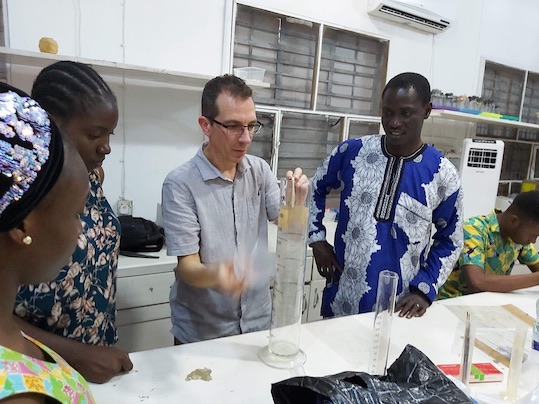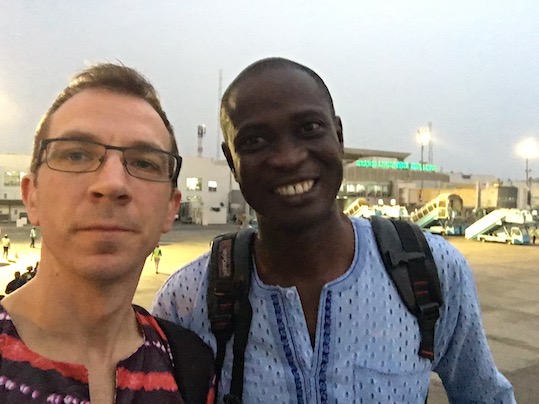As an alternative to expensive pharmaceuticals, there is broad interest in the developing world to evaluate the therapeutic potential of natural compounds for widespread, debilitating diseases. As part of our ongoing effort to engage with a broader scientific community, Dr Alex Whitworth (Mitochondrial Neurodegeneration) has established a collaboration with researchers at the University of Ibadan, Nigeria, led by Dr Amos Abolaji (Department of Biochemistry), to help develop Drosophila as an animal model for research in sub-Saharan Africa.
Recent work from this collaboration, partly funded by International Centre for Genetic Engineering and Biotechnology (ICGEB, Italy) and Cambridge-Africa ALBORADA Research Fund (UK) grants, investigated the neuroprotective potential of natural products resveratrol and trans-astaxanthin in genetic and toxin-induced models of Parkinson’s disease, respectively. Dr Abolaji’s team found that both resveratrol and trans-astaxanthin exhibited antioxidant activities and prevented the neurological phenotypes in the genetic and toxin-induced models of Parkinson’s, respectively [1, 2]. These findings support the use of resveratrol, a stilbenoid extracted from grape skins and other fruits, and trans-astaxanthin, a keto-carotenoid found in freshwater algae and some yeast, for the treatment of neurological conditions linked to oxidative stress.
Importantly, this work made use of Drosophila melanogaster (fruit flies) as an animal model. While this model organism is widely used and highly valued in biomedical research in the developed world as a powerful yet inexpensive animal model, it is surprisingly underused in other geographic locations such as sub-Saharan Africa. As part of our ongoing collaboration, Dr Whitworth has supported Dr Abolaji in establishing the Drosophila Research and Training Centre Ltd/Gte in Basorun, Ibadan, Nigeria [3] whose mission is to promote the use of Drosophila in educational and research activities. It also serves as a hub to train biomedical scientists from across sub-Saharan Africa in the use of Drosophila as a model system for their research.
1. https://www.nature.com/articles/s41598-022-07909-7




